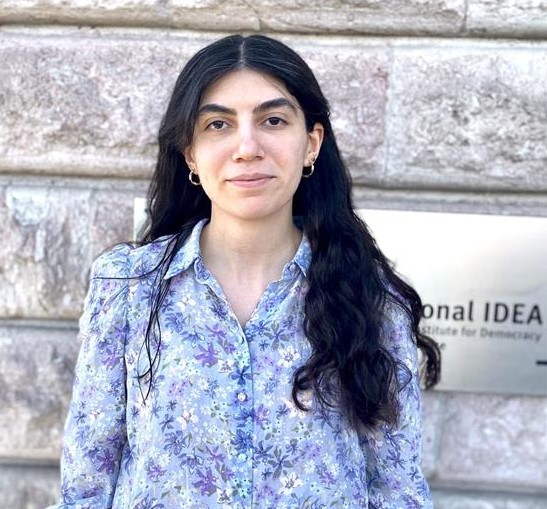Managing elections after earthquakes – Challenges for Turkey

Turkey is preparing to hold presidential and parliamentary elections on 14 May, three months after two catastrophic quakes that affected 15.8 million people in the country’s southeastern part.
Disclaimer: Opinions expressed in this commentary are those of the author and do not necessarily represent the institutional position of International IDEA, its Board of Advisers or its Council of Member States.
Turkey is not alone when it comes to organizing an election after a natural disaster. International IDEA has identified 28 cases when natural hazards (hurricanes, floods, wildfires, and earthquakes) have impacted national and subnational elections in 19 countries from all regions of the globe. This includes Haiti and Japan, which held elections after the 2010 earthquake and the 2011 earthquake/tsunami.
In March 2023, the delegation of the Supreme Election Council of Turkey (YSK) investigated the status of election infrastructure, such as polling stations and election materials, in the quake-affected provinces. The overall assessment from the YSK delegation was that there were “no obstacles” to holding elections in the 11 provinces most affected by the earthquake, provided that specific contingency measures were introduced.
In addition to its special voting arrangements, including mobile ballot boxes and voting from abroad, YSK has taken several measures to make voting more accessible and convenient to the citizens. To date, the YSK has developed plans to establish hundreds of special polling stations, which will be made up of tents or containers to replace some of the destroyed buildings used as polling stations in the past. Moreover, the YSK enabled citizens who lost their primary identification documents (passport, driving license, national ID card) to vote with a three months valid temporary ID documentation that can be taken from the e-government gate. Furthermore, the YSK has launched a voter information campaign to enhance access to Mukhtar district's appealable voter lists and polling locations, especially for voters affected by the earthquake. Despite these contingency measures, some political actors, including the Izmir Bar Association President and the İYİ party’s Antalya Deputy, have expressed concerns related to voter registration and updating the voting lists. This article will examine both issues.
Registration of displaced citizens
First, the quake-affected internally displaced citizens face a risk of disenfranchisement if there are hindrances to filing a chance to address changes or difficulties in accessing polling stations in the quake areas. A pre-electoral delegation from the Parliamentary Assembly of the Council of Europe (PACE) who visited Ankara in April expressed concerns with the limited number of displaced persons who had re-registered their address changes.
The 2 million citizens made homeless who had to move to temporary shelters or different provinces were given the option to declare their address change through a government website or at one of the district election boards located throughout the country. According to the YSK, approximately 300,000 people used this option before the 2 April deadline. This suggests that more than 1.6 million citizens displaced by the earthquake will need to return ‘home’ on election day to be able to vote, regardless of distance. Besides the material cost of mobilizing, traumatized displaced earthquake survivors may hesitate to travel to their home districts, and some segments (for instance, women, disabled people, and elderly people) may be more disadvantaged in the case of transport.
Even though the voting is compulsory in Turkey, the displacement of the quake-affected citizens may be disenfranchised in the upcoming elections. This may affect the voter turnout, which was as high as 86.2 percent in the 2018 Turkish general election.
To facilitate voting on election day, some political party representatives and civil society organizations, as well as one state agency, the Disaster and Emergency Management Presidency (AFAD) that works with the Ministry of Internal Affairs, promised to facilitate the voting process by mobilizing the displaced voters whose address records are in the earthquake zone. How this would work in practice is yet to be disclosed, but most likely, arrangements will be made in Turkey’s three largest cities (İstanbul, Ankara, İzmir) where most of the displaced citizens are currently living.
Turkey’s Electoral Law does not prohibit the parties from transporting voters to the polls. There are also some countries (e.g., Canada, Germany, the United Kingdom and the United States) where transport of voters by political parties is allowed, when lack of access to transportation can create an obstacle to voting. The case study on Indian elections also shows that in a crisis like Covid-19, EMBs can facilitate voting for some citizens by providing transportation.
The accuracy of voter lists
Second, the inefficient correction of the voter list after the natural hazards may create an obstacle to electoral integrity by increasing the perceived risk of fraud. Since the quake, the government has not provided any official figures on the number of people missing in the affected area. Estimates provided by İYİ Party and İzmir Bar Association suggested that the figure could be as high as 180,000 based on the missing phone signals. Death certificates cannot be obtained in cases where the bodies in the earthquake area are not found.
According to the law, a declaration of absence takes six months to 5 years based on the request of a relative of the missing person. This means that the missing citizens will remain on the voter list for the election, thereby increasing the perceived risk of fraud. For the public, the appearance of integrity of the election process, together with the actual integrity of the election administration, are the measures for the legitimacy of an election.
According to International IDEA’s ‘Code of Conduct for the Ethical and Professional Administration of Elections’, election administration must be designed to serve the voter. Therefore, the YSK and other EMBs involved in elections after a natural disaster should 'do everything possible to provide a way to vote for people with special needs' to enhance electoral integrity. Enfranchising the citizens living in temporary shelters or different provinces is one way of accomplishing this goal.




